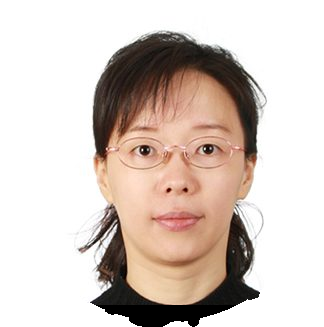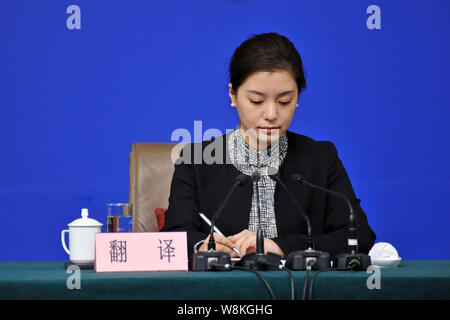

Next to him, interpreter Zhang Jing is fiercely taking notes. One video of the first session of the diplomatic talks shows how Yang Jiechi starts his response to the American side at 8.30 minutes, going on for over 15 minutes until the 24.36-minute mark. While international media focused on the meeting and what their outcome means for Sino-American relations and the foreign strategies of China and the U.S., many Weibo users focused on interpreter Zhang Jing (张京) who joined the meeting. Despite the tense start of the meeting and some describing the talks as a “diplomatic clash,” China’s top diplomat Yang Jiechi (杨洁篪) called the meeting “frank, constructive and helpful,” New York Times reports. The first major U.S.-China meeting of the Biden administration ended on Friday, March 19. Over the past days, the U.S.-China strategic talks in Anchorage have been a major topic of discussion on Chinese social media. Chinese female translator Zhang Jing became an online hit in China for remaining unflustered, graceful, and accurate. In the future, Pudong will integrate resources to further promote Fu's spirit and culture, Yan added.It probably was not easy to translate the tough talks at the high-level meeting between the U.S. It now has a former residence, library, school and foundation under Fu's name Through the years, Zhoupu has been working to promote his spirit and explore his legacy. Yan Bo, deputy director of Pudong, said Fu is a major brand in Pudong culture. In 1912, he moved with his mother to Zhoupu, where he lived and went to school until he was 19 years old. It has set an example at home and grown in stature overseas," he said.įu was born in a traditional courtyard house in Hangtou Town in Pudong. "Over the years, the award has received more than 600 entries and discovered dozens of great translators. Laurent Bili, French ambassador to China, said China has always been the number one partner of France in the publishing industry, and the Fu Lei award lifted great translators from obscurity.ĭong Qiang, chairman of the award's organizing committee, said the Fu Lei Award has grown. It has proven to be a wise decision," Huang said.

It suddenly occurred to me 'The Last Lesson' by Alphonse Daudet stated French is the most beautiful language in the world. "I had no idea about what to study in university when I graduated high school. The Seedling Growth prize went to Wang Xian for translating "Back to Reims" by sociologist and philosopher Didier Eribon. Huang Yaqin won the Literature prize for translating "Boy" by author Marcus Malte. Zhang Wen won the Essay prize for translating "The Experience of the Foreign: Culture and Translation in Romantic Germany" by philosopher and historian Antoine Berman. This year's award was presented in the Fu Lei Library, the only one in China themed for Fu.Ī total of 47 translated works were in the running for the award this year – 35 in the "essay" category and 12 in the "literature" category. "Sometimes, translating is harder than writing," he said.

Mo Yan, the first Chinese writer to win the Nobel Prize for Literature, gave some of the credit to translation. "The Fu Lei award is important to me," Nobel literature laureate Jean-Marie Gustave Le Clézio said, noting that without translation we are blind and deaf. In 2009, the French Embassy in China established a translation award under his name to honor his contribution and promote Chinese-French translation. The awarding ceremony of the 13th Fu Lei Translation and Publishing Award (Le Prix Fu Lei) took place over the weekend in Zhoupu Town where he lived from age 4 until 19.įu (1908-1966), also known as Fou Lei, is best known for his translations of French writers, including Balzac and Voltaire. The 13th Fu Lei Translation and Publishing Award takes place in Shanghai.Ī translation award dedicated to renowned translator Fu Lei has revealed this year's winners at Fu's home in Shanghai, a link to Fu's spirit that's still alive today.


 0 kommentar(er)
0 kommentar(er)
